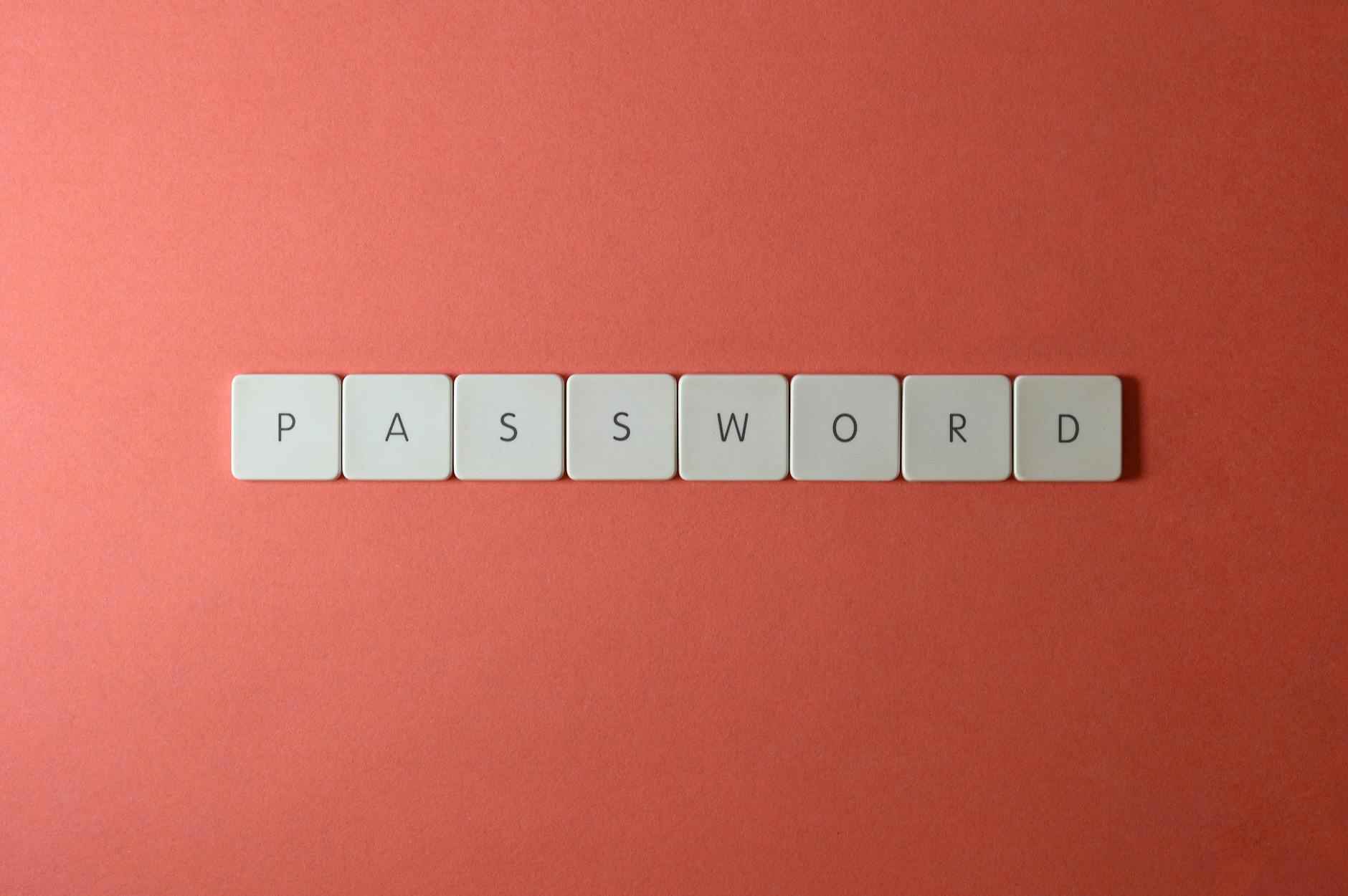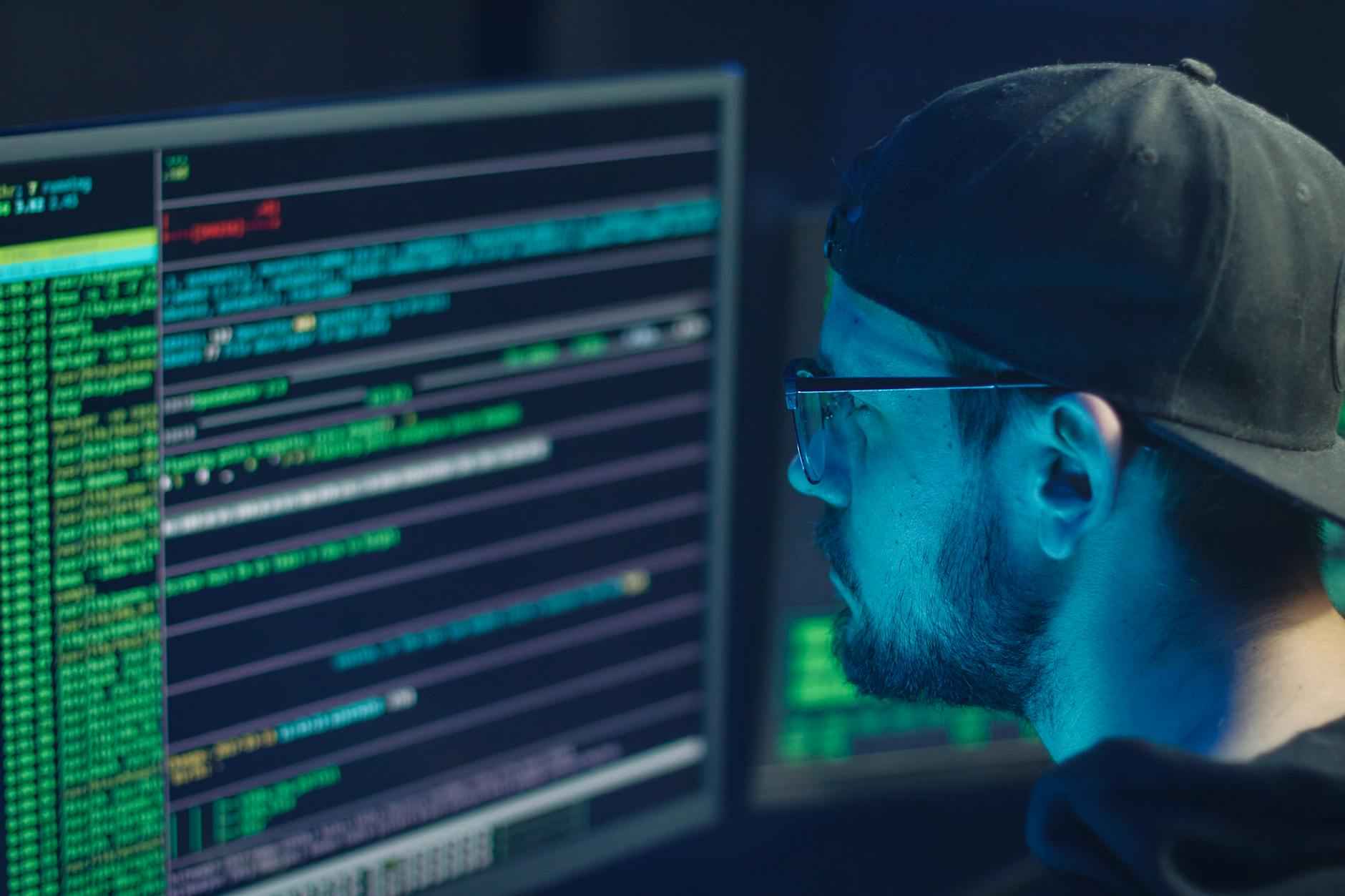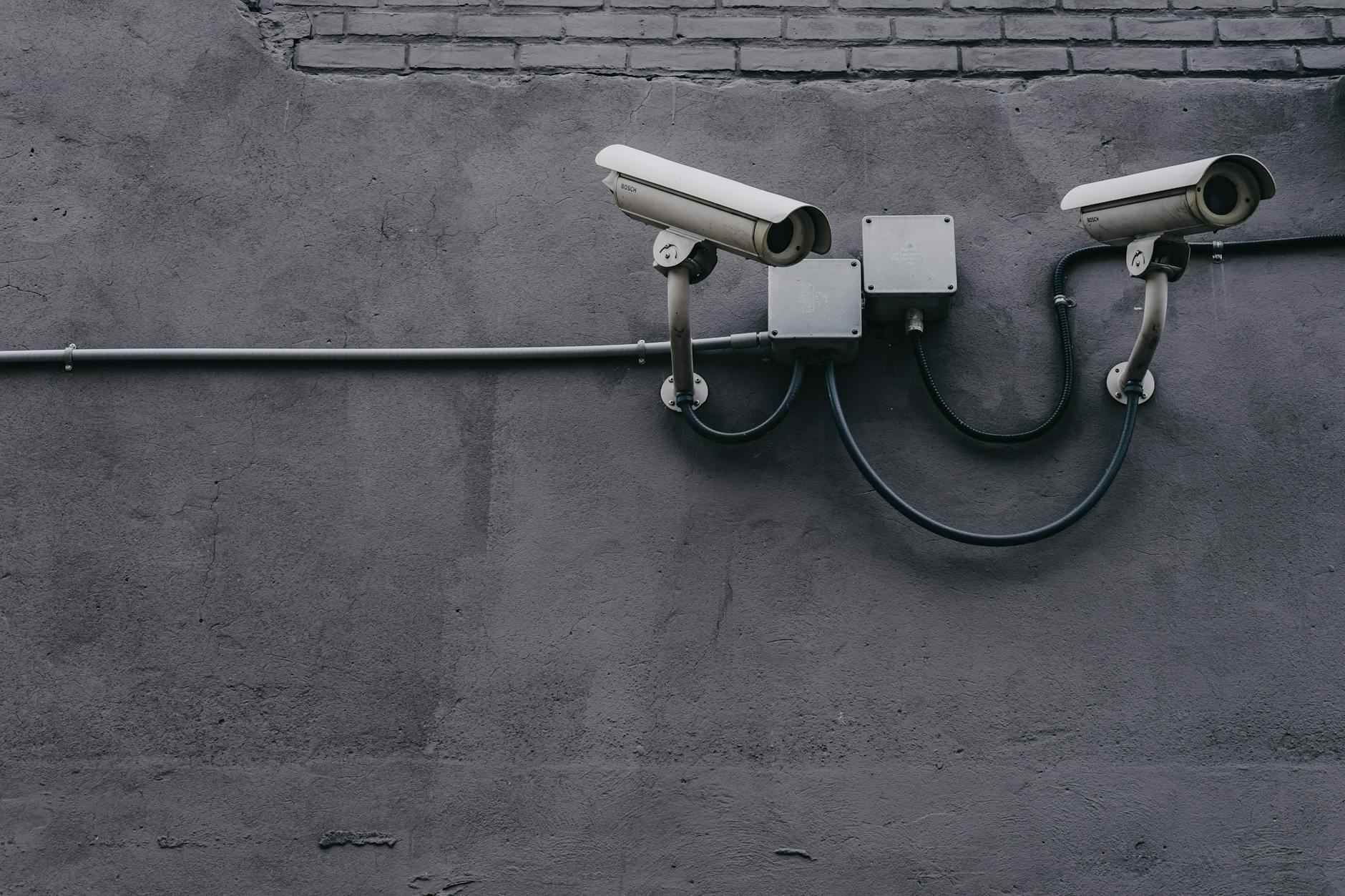The evolution of internet leaks has been a significant topic in the digital age, particularly following events like the Fappening incident in 2014. This scandal involved the unauthorized release of private photographs of numerous celebrities, igniting a widespread discussion about online privacy, digital security, and the societal implications of our obsession with celebrity culture. The Fappening not only exposed the vulnerabilities of personal data in the cloud but also raised critical questions about the ethics of sharing and consuming such content. This article delves into the implications of these leaks, the changing landscape of online privacy, and the urgent need for stronger protections in our increasingly connected world.
The Fappening incident was not just a scandal; it was a wake-up call for many. In a world where social media and cloud storage have become ubiquitous, the notion of privacy has shifted dramatically. Celebrities, often seen as larger-than-life figures, found themselves at the mercy of hackers who exploited vulnerabilities in their online security. This incident revealed how easily personal information could be accessed and disseminated, raising alarms about the safety of our digital lives.
Many individuals assume that their private data is secure, especially when using popular platforms. However, the reality is that even the most tech-savvy users can fall victim to breaches. The Fappening demonstrated that no one is immune, and it highlighted the need for a more profound understanding of online privacy. People began to realize that their digital footprints are often more exposed than they perceive, leading to a collective reckoning about the importance of safeguarding personal information.
Social media has revolutionized communication, allowing us to connect with friends and family across the globe. However, this connectivity comes with a price. The lines between public and private have blurred, making it easier for personal moments to be shared and, in some cases, exploited. The Fappening incident serves as a stark reminder of how quickly intimate details can become public fodder.
Consider the experience of a celebrity who, after the Fappening, expressed feelings of violation and betrayal. This emotional toll is not limited to public figures; everyday individuals can also suffer from similar breaches of privacy. The incident sparked conversations around the ethical responsibilities of those who consume leaked content and the need for empathy towards victims.
The legal framework surrounding online privacy is complex and often lagging behind technological advancements. Laws such as the General Data Protection Regulation (GDPR) in Europe aim to protect individuals’ rights, yet many victims of leaks find themselves without adequate recourse. The challenges of navigating this legal maze can be daunting, leaving many feeling helpless.
As technology evolves, so too must our legal systems. Experts advocate for reforms that address the unique challenges posed by digital leaks. This includes updating existing laws to better protect individuals from unauthorized data exposure and ensuring that victims have access to support and justice. The conversation around legal protections is ongoing, with many calling for a more robust framework that can effectively respond to the realities of our digital age.
In light of the Fappening and similar incidents, it is crucial for individuals to take proactive steps to safeguard their personal information. Here are some practical measures to enhance your online security:
- Use Strong Passwords: Create complex passwords that combine letters, numbers, and symbols. Avoid using easily guessable information.
- Enable Two-Factor Authentication: This adds an extra layer of security, requiring a second form of verification before accessing accounts.
- Be Mindful of What You Share: Consider the implications of sharing personal information online. Not everything needs to be public.
Additionally, fostering digital literacy is essential. Understanding the intricacies of online privacy empowers individuals to make informed decisions about their digital lives. Educating oneself about potential threats and the tools available for protection can significantly reduce vulnerability to online breaches.
The emotional and psychological impact of online leaks cannot be overstated. Victims often experience anxiety, depression, and a profound sense of violation. Support networks play a critical role in helping individuals navigate the aftermath of such incidents, providing the necessary resources to foster resilience and healing.
As we continue to navigate this digital landscape, it is essential to advocate for stronger protections and to cultivate a culture of respect for privacy—both online and offline. The Fappening serves as a pivotal reminder of the consequences of our actions in the digital realm, urging us to rethink our approach to privacy and security in an interconnected world.

The Fappening: A Digital Scandal
The Fappening, a term that emerged from the shocking 2014 leak of private celebrity photographs, serves as a pivotal case study in understanding the complexities of digital privacy in our modern era. This incident not only exposed the vulnerabilities inherent in online data storage but also ignited a broader conversation about the ethics of privacy and the consequences of its violation. As we delve deeper into the ramifications of this scandal, it becomes evident that the effects reach far beyond the realm of celebrity culture, impacting societal norms and individual rights.
The Fappening incident involved the unauthorized access and distribution of private photos of numerous high-profile celebrities, including Jennifer Lawrence and Kate Upton. This breach of privacy was facilitated by a combination of social engineering and security flaws in cloud storage services. The scandal not only shocked the public but also highlighted the precarious nature of online privacy. With the rise of social media and digital storage, many individuals, including celebrities, have placed a significant amount of trust in these platforms to safeguard their personal information. However, the events of that fateful day in September 2014 shattered this illusion of safety.
In the aftermath, a wave of discussions emerged regarding the ethical implications of sharing such content. Many argued that the public’s insatiable curiosity about the lives of celebrities often overrides respect for their privacy. As a society, we must ask ourselves: at what point does our fascination with fame cross the line into exploitation?
Online privacy has become an increasingly fragile concept, especially in the age of social media. The Fappening illuminated just how quickly personal data can become public, often with devastating consequences. Many users mistakenly believe that adjusting their privacy settings will provide adequate protection against breaches. However, the reality is that these measures can often be circumvented by skilled hackers.
For instance, a recent study revealed that nearly 60% of individuals have experienced some form of data breach, yet many remain unaware of the extent of their digital footprints. This lack of awareness can lead to a false sense of security, making individuals more vulnerable to potential attacks. As the lines between public and private continue to blur, it becomes crucial for users to educate themselves on best practices for maintaining their online security.
| Best Practices for Online Privacy | Description |
|---|---|
| Use Strong Passwords | Combine letters, numbers, and symbols to create complex passwords that are hard to guess. |
| Enable Two-Factor Authentication | Add an extra layer of security by requiring a second form of verification. |
| Be Cautious with Sharing | Think twice before posting personal information or images online. |
| Regularly Update Software | Keep all devices and applications updated to protect against vulnerabilities. |
The emotional toll of incidents like the Fappening cannot be overstated. Victims often experience feelings of anxiety, depression, and a profound sense of violation. For instance, Jennifer Lawrence, one of the most affected celebrities, spoke out about the psychological impact of having her privacy invaded. She noted that the experience left her feeling vulnerable and exposed, not just as a public figure, but as a human being. This sentiment resonates with many who have suffered similar breaches, whether they are celebrities or everyday individuals.
Support networks play a vital role in helping victims navigate the aftermath of such leaks. Many find solace in communities that understand their experiences, fostering resilience and a sense of normalcy amidst the chaos. It’s essential to remember: behind every leaked photo is a person with feelings and dignity, deserving of respect and empathy.
As we reflect on the implications of the Fappening, it becomes clear that the conversation surrounding online privacy is far from over. The need for stronger legal protections and a cultural shift towards respecting personal boundaries is more pressing than ever. As technology continues to evolve, so too must our understanding and practices regarding digital security. It is not just about protecting data; it is about safeguarding the fundamental rights of individuals in a world where the lines between public and private are increasingly blurred.

Understanding Online Privacy
In today’s interconnected world, the concept of online privacy has evolved into a critical concern for individuals navigating the digital landscape. With every click, like, and share, we leave behind a digital footprint that can be traced, analyzed, and potentially exploited. As social media platforms and cloud storage services proliferate, our personal data has become more vulnerable than ever. This article delves into the intricate web of online privacy, exploring the rights and expectations individuals have regarding their data, and highlighting the pressing need for awareness and protective measures.
Every time we interact online, we create a digital footprint—an electronic trail that reflects our activities, preferences, and personal information. This footprint can include everything from social media posts to online shopping habits. The vulnerability of this data is alarming, especially in an age where data breaches are not just common but almost expected. For instance, in 2020 alone, data breaches exposed over 37 billion records worldwide. This staggering figure underscores the importance of understanding how our data is collected, stored, and used.
Moreover, many individuals are unaware of the extent to which their information is shared. Social media platforms often employ complex algorithms that analyze user behavior to target advertisements. While this can enhance user experience, it raises significant questions about consent and privacy. For example, a casual post about a recent vacation could lead to targeted ads for travel packages, but at what cost to our privacy? This blurring of lines between personal and public information necessitates a deeper understanding of online privacy rights.
As technology advances, so do the methods employed by those seeking to exploit personal information. Cybersecurity experts warn that the rise of sophisticated hacking techniques poses a constant threat to online privacy. Despite the implementation of privacy settings, many users mistakenly believe these measures provide adequate protection. In reality, hackers often find ways to bypass these safeguards, leaving individuals exposed. A study by the Pew Research Center found that 70% of Americans feel that their personal information is less secure than it was five years ago.
Consider the experience of Sarah, a young professional who thought she was tech-savvy. After adjusting her privacy settings on a popular social media platform, she felt a false sense of security. However, when her photos were leaked online due to a data breach, she realized that her efforts were insufficient. Sarah’s story is a stark reminder of the need for vigilance and informed decision-making in the digital realm. It is crucial to recognize that privacy settings alone cannot guarantee protection; a comprehensive understanding of online security is essential.
In light of the challenges surrounding online privacy, education emerges as a powerful tool for empowerment. Individuals must familiarize themselves with the intricacies of data privacy and security to navigate the digital landscape effectively. This includes understanding the importance of strong passwords, enabling two-factor authentication, and being discerning about the information shared online.
Moreover, fostering digital literacy can help individuals make informed choices about their online presence. Workshops and community programs focused on online safety can equip people with the knowledge needed to protect their personal information. By creating a culture of awareness, we can collectively enhance our resilience against potential threats.
As we continue to engage with technology, it is vital to advocate for stronger regulations that protect individual privacy rights. The implementation of laws like the General Data Protection Regulation (GDPR) in Europe is a step in the right direction, but there is still much work to be done globally. These regulations must evolve alongside technology to ensure that individuals are safeguarded against unauthorized data exposure.
In conclusion, understanding online privacy is no longer a luxury; it is a necessity. As we navigate the complexities of the digital world, we must remain vigilant and proactive in protecting our personal data. By educating ourselves and advocating for stronger privacy measures, we can take meaningful steps toward securing our online presence and ensuring that our digital footprints do not become our vulnerabilities.
The Role of Social Media
In today’s digital landscape, social media platforms have fundamentally altered the way we communicate and share information. The lines between private and public life have become increasingly blurred, leading to significant implications for personal privacy and data security. The rapid rise of platforms like Facebook, Instagram, and Twitter has created a culture where sharing personal moments and opinions is not only encouraged but often expected. While this connectivity offers numerous benefits, it also introduces a host of risks, particularly concerning data exposure and privacy violations.
Social media has revolutionized communication, allowing individuals to connect and share experiences with a global audience. However, this transformation comes at a cost. The ease of sharing personal information can lead to unintended exposure, where private moments become public fodder. For instance, a seemingly innocent post about a family gathering can reveal details that may be exploited by malicious actors. As users navigate this complex landscape, they often underestimate the potential consequences of their online interactions.
Consider the story of Sarah, a college student who shared a photo from her vacation on social media. What started as a fun moment quickly spiraled into a privacy nightmare when an acquaintance used the information to track her whereabouts. This incident highlights the reality that even benign posts can have serious repercussions. The ability to share information instantly has made it easier for people to overlook the potential risks associated with their digital footprints.
Many users believe that adjusting privacy settings can adequately protect their personal information. However, this assumption is often misleading. While social media platforms provide various privacy options, they can be complex and confusing. Users may not fully understand how to configure these settings, leaving them vulnerable to data breaches and unauthorized access. Moreover, even the most stringent privacy settings can fall short against sophisticated hacking techniques.
In light of this, it’s essential to recognize that privacy on social media is a shared responsibility. Users must remain vigilant about the information they disclose. A study conducted by the Pew Research Center found that a significant percentage of social media users have experienced some form of privacy violation, whether it’s unauthorized access to their accounts or unwanted sharing of personal information. This statistic underscores the need for individuals to take proactive measures to safeguard their online presence.
The phenomenon of oversharing has become increasingly prevalent in our society. Social media encourages users to document their lives in real time, often prioritizing likes and shares over privacy. This cultural shift can lead to a desensitization towards privacy concerns, as individuals become more comfortable sharing intimate details of their lives. The allure of social validation can overshadow the potential risks associated with exposing personal information.
For example, influencers and public figures often share their lives with millions of followers, creating a perception that privacy is a luxury rather than a right. This normalization of oversharing can have detrimental effects, not only on the individuals involved but also on societal attitudes towards privacy. As more people engage in this behavior, the expectation for privacy diminishes, leading to a cycle where personal data becomes increasingly vulnerable.
As we navigate this evolving landscape, it is crucial to cultivate a culture of awareness and responsibility. Engaging in conversations about online privacy and sharing experiences can help individuals recognize the potential dangers of oversharing. By fostering a community that values privacy, we can work towards creating a safer digital environment for everyone.
In conclusion, while social media has transformed communication and connectivity, it has also introduced significant challenges regarding privacy and data security. Users must remain vigilant and informed about the implications of their online actions. By understanding the risks associated with social media and taking proactive measures to protect their personal information, individuals can better navigate this complex digital landscape. Ultimately, fostering a culture of awareness and responsibility is essential in ensuring that the benefits of social media do not come at the expense of our privacy.
The Double-Edged Sword of Connectivity
In an era where social media plays an integral role in our daily lives, the lines between public and private have become increasingly blurred. While these platforms offer unparalleled connectivity, they also expose us to significant vulnerabilities. The phenomenon of sharing personal moments online can lead to unintended consequences, as evidenced by numerous high-profile leaks that have shaken public trust and raised critical questions about digital privacy. One such incident, the Fappening, serves as a stark reminder of the risks associated with our online presence.
The Fappening, which erupted in 2014, involved the unauthorized leaking of intimate photographs of several celebrities. This scandal was not just a breach of privacy; it was a cultural moment that forced society to confront the implications of digital exposure. The event highlighted how quickly personal content could become public fodder, leading to a widespread discussion about consent, privacy rights, and the responsibilities of social media platforms.
As we delve deeper into the implications of such incidents, we must recognize that the digital landscape is fraught with risks. The allure of sharing our lives online often overshadows the potential repercussions. For instance, many individuals, especially those in the public eye, find themselves grappling with the consequences of their digital footprints. The Fappening incident exemplifies this reality, as it not only affected the celebrities involved but also sparked a broader dialogue about the ethics of sharing and consuming personal content.
Social media platforms have transformed the way we communicate, enabling us to connect with friends, family, and even strangers across the globe. However, this connectivity comes at a cost. The more we share, the more we expose ourselves to potential breaches of privacy. Personal moments that were once cherished in private can quickly become viral sensations, leading to feelings of vulnerability and violation.
Consider the story of a young woman who shared a seemingly innocuous photograph on her social media account. Within hours, the image was manipulated and circulated without her consent, leading to a cascade of harassment and emotional distress. This scenario is not unique; countless individuals have faced similar situations, underscoring the urgent need for stronger privacy protections in the digital realm.
| Incident | Year | Impact |
|---|---|---|
| The Fappening | 2014 | Increased awareness of digital privacy risks |
| Cambridge Analytica Scandal | 2018 | Revelation of data misuse by social media platforms |
| Twitter Data Breach | 2020 | Exposed vulnerabilities in data security |
In light of these alarming trends, it is imperative for individuals to take proactive measures to safeguard their online presence. Simple yet effective strategies can significantly reduce vulnerabilities. For instance, employing strong, unique passwords and enabling two-factor authentication can provide an additional layer of security.
Moreover, it is crucial to cultivate a sense of digital literacy. Understanding the privacy settings of various platforms and being mindful of what we share can empower users to navigate the online world more safely. Experts recommend regularly reviewing privacy settings and being cautious about friend requests from unknown individuals, as these can often lead to unwanted exposure.
Additionally, fostering a culture of respect and consent in our online interactions is vital. As we share our lives, we must also consider the implications of our actions on others. This shift in mindset can help create a more secure and respectful digital environment for everyone.
Ultimately, while social media offers the promise of connectivity, it is essential to remain vigilant about the potential pitfalls. The Fappening serves as a cautionary tale about the fragility of privacy in the digital age. As we continue to embrace technology, let us do so with an awareness of the responsibilities that come with it, ensuring that our online presence reflects not only our desire to connect but also our commitment to protecting our privacy and that of others.
Privacy Settings: A False Sense of Security?
In today’s digital landscape, many users find themselves grappling with the complexities of online privacy. The belief that adjusting privacy settings can effectively safeguard personal data is widespread, yet this perception often overlooks the reality of sophisticated hacking techniques and the prevalence of data breaches. As we navigate through the intricacies of our online existence, it becomes increasingly clear that relying solely on privacy settings may provide a false sense of security.
When users adjust their privacy settings, they often feel a sense of empowerment, believing they have taken the necessary steps to protect their information. However, this sense of control can be misleading. Many users are unaware that even the most stringent privacy settings can be circumvented by skilled hackers. For instance, a well-known incident involved a celebrity whose private photos were leaked despite having strong privacy controls in place. This case serves as a stark reminder that privacy settings alone cannot guarantee safety.
Moreover, the rapid evolution of technology means that hackers are constantly developing new methods to breach security measures. The rise of phishing attacks, malware, and other cyber threats has rendered traditional privacy settings inadequate. As users, we must recognize that while these settings are a step in the right direction, they are not foolproof. The need for a deeper understanding of digital security practices is paramount.
To truly grasp the limitations of privacy settings, it is essential to understand the various risks associated with online activity. Data breaches have become alarmingly common, affecting millions of users worldwide. In many cases, personal information is stolen and sold on the dark web, where it can be used for identity theft or other malicious purposes. According to a recent report, over 4 billion records were compromised in data breaches in just one year, highlighting the urgency of addressing these vulnerabilities.
Additionally, social media platforms, while offering a space for connection, often blur the lines between private and public information. Users frequently share personal details without considering the potential consequences. A casual post about a recent vacation could inadvertently reveal your location to malicious actors. This highlights the importance of being vigilant and aware of what one shares online.
While privacy settings may not be the ultimate solution, there are several practical steps individuals can take to enhance their online security:
- Use Strong Passwords: Create complex passwords that combine letters, numbers, and symbols. Avoid using easily guessable information, such as birthdays or names.
- Enable Two-Factor Authentication: This adds an extra layer of security by requiring a second form of verification, such as a code sent to your phone.
- Stay Informed: Regularly educate yourself about the latest security threats and best practices for online safety.
- Limit Personal Information Sharing: Be mindful of what you post on social media and consider adjusting your privacy settings to restrict who can see your information.
By implementing these strategies, individuals can significantly reduce their vulnerability to online threats. It’s essential to approach online privacy with a proactive mindset, recognizing that security is an ongoing process rather than a one-time fix.
In conclusion, while adjusting privacy settings is a commendable step toward protecting personal data, it is crucial to understand their limitations. The digital landscape is fraught with risks, and users must take a multi-faceted approach to safeguard their information. By combining privacy settings with robust security practices and a heightened awareness of online risks, individuals can better navigate the complexities of the digital world. Remember, true security comes from a comprehensive understanding of the threats we face and the proactive measures we take to mitigate them.
Celebrity Culture and Its Consequences
The Fappening incident of 2014 served as a stark reminder of the vulnerabilities inherent in our digital lives, particularly for those in the public eye. This event, which involved the unauthorized release of private photographs of numerous celebrities, exposed a troubling intersection of celebrity culture and online privacy. The public’s fascination with stars often leads to invasive actions that blatantly disregard their privacy and autonomy, highlighting a deeper societal issue that extends beyond mere curiosity.
At its core, the Fappening was not just a scandal; it was a reflection of how society views celebrity. In a world where social media reigns, the lines between public and private are increasingly blurred. Fans feel a sense of ownership over the lives of their idols, often leading to a toxic obsession. This obsession can manifest in harmful ways, including the violation of personal boundaries and the exploitation of private moments.
This incident not only shocked the entertainment industry but also sparked critical conversations about the ethics of celebrity worship. It raises an important question: when does admiration turn into invasion? The Fappening was not an isolated event; it was part of a growing trend where the allure of celebrity leads to severe breaches of privacy. For many, these public figures are seen as commodities, stripped of their humanity and reduced to mere entertainment.
Consider the emotional toll this takes on the individuals involved. Celebrities like Jennifer Lawrence and Kate Upton, among others, found themselves thrust into a media storm that was both humiliating and damaging to their mental health. The incident serves as a poignant reminder that behind the glitz and glamour, these individuals are human beings with feelings and rights. The psychological impact of such violations can be profound, leading to anxiety, depression, and a pervasive sense of vulnerability.
The Fappening also highlighted significant gaps in legal protections for individuals against online breaches. While laws like the General Data Protection Regulation (GDPR) have been enacted to safeguard personal data, the rapid evolution of technology often outpaces legislative efforts. As a result, many victims of such leaks find themselves without adequate recourse. The legal landscape is complex, with varying degrees of protection depending on jurisdiction, leaving many feeling powerless in the face of such violations.
Furthermore, the ethical implications of sharing leaked content cannot be overstated. Engaging with or disseminating this material contributes to a culture that normalizes such invasions of privacy. It sends a message that it is acceptable to exploit others for personal gratification, further perpetuating the cycle of harm. As a society, we must grapple with our role in this dynamic and consider the impact of our actions on the lives of others.
In light of these challenges, it is essential to foster a culture of respect and empathy towards public figures. Understanding the human cost of digital leaks is crucial in promoting a safer online environment. Individuals must recognize their responsibility in consuming and sharing content, particularly when it involves the personal lives of others. This shift in mindset can help diminish the harmful effects of celebrity culture and encourage a more respectful approach to privacy.
To protect oneself in this digital age, individuals should adopt best practices for online security. Utilizing strong passwords, enabling two-factor authentication, and being judicious about what personal information is shared online are effective strategies to mitigate risks. Moreover, enhancing digital literacy is vital. By educating ourselves about online privacy and security, we empower ourselves to make informed decisions that safeguard our personal data.
Ultimately, the Fappening serves as a cautionary tale, reminding us of the critical need for stronger protections and a cultural shift in how we regard privacy in the digital realm. As we navigate this interconnected world, let us strive to create an environment that values respect, dignity, and the autonomy of all individuals, regardless of their celebrity status. The responsibility lies not only with the platforms that host our content but also with each of us as consumers of information.

Legal Ramifications of Online Leaks
The digital age has ushered in unprecedented challenges regarding personal privacy, particularly highlighted by events like the Fappening incident of 2014. This notorious leak of private celebrity photos not only marked a significant breach of trust but also exposed the glaring inadequacies in our legal systems. As technology evolves at breakneck speed, laws designed to protect individual privacy seem to lag behind, leaving many victims vulnerable and without sufficient recourse.
The legal framework surrounding online privacy is a complex tapestry woven from various regulations, statutes, and court rulings. In the aftermath of the Fappening, many victims found themselves grappling with the harsh reality that existing laws often fail to address the nuances of digital breaches. For instance, while laws like the General Data Protection Regulation (GDPR) in Europe offer some protections, they are not universally applicable and may not cover all scenarios of online privacy violations.
Moreover, the jurisdictional challenges posed by the internet complicate matters further. An individual in the United States may find it challenging to seek justice against a perpetrator located in another country, where laws may differ significantly. This disparity creates a patchwork of protections that often leaves victims feeling hopeless and exposed.
Victims of online leaks often experience a profound emotional toll, compounded by the legal hurdles they must navigate. Many individuals report feelings of anxiety, shame, and violation after their private images or data are exposed. The societal fascination with celebrity culture can exacerbate these feelings, as victims are often thrust into the public eye, facing judgment and scrutiny from both media and peers.
In many cases, victims may find themselves in a legal quagmire, unsure of where to turn for help. The process of pursuing legal action can be daunting, requiring substantial resources and legal expertise. Furthermore, even when victims do manage to pursue claims, the outcomes are often unpredictable, with courts struggling to keep pace with the rapid evolution of technology and its implications for privacy.
As the digital landscape continues to evolve, so too must our approaches to online privacy and legal protections. Experts advocate for comprehensive reforms that address the unique challenges posed by technological advancements. This includes not only updating existing laws but also creating new frameworks that specifically target online privacy violations.
Moreover, public awareness and education play a crucial role in fostering a safer online environment. By empowering individuals with knowledge about their rights and the potential risks associated with sharing personal information online, we can cultivate a culture of vigilance and responsibility. Initiatives aimed at increasing digital literacy can help individuals navigate the complexities of online privacy, making informed decisions about their digital footprints.
In conclusion, the legal ramifications of online leaks are multifaceted and deeply intertwined with the emotional and psychological experiences of victims. As we continue to grapple with the implications of technology on privacy, it is essential to advocate for stronger protections and a more robust legal framework. Only then can we hope to create a digital environment where individuals feel secure in their online interactions, free from the fear of unauthorized exposure and violation.
Current Laws and Regulations
In today’s digital landscape, understanding the intricacies of laws such as the General Data Protection Regulation (GDPR) is crucial for individuals who find themselves grappling with the aftermath of online breaches. The rapid evolution of technology has outpaced legal frameworks, leaving many victims feeling vulnerable and unprotected. This complexity not only highlights the challenges faced by individuals seeking justice but also underscores the importance of informed digital citizenship in a world where personal data is often at risk.
The legal landscape surrounding online privacy is often perceived as a labyrinthine structure, filled with intricate regulations and ambiguous definitions. The GDPR, implemented in 2018, serves as a landmark regulation in the European Union that aims to protect the privacy and personal data of individuals. It mandates strict guidelines for data collection, processing, and storage by organizations. However, the enforcement of these regulations can be inconsistent, leading to confusion among users trying to navigate their rights.
For instance, a victim of an online breach may find it challenging to ascertain whether their case falls under GDPR protections, especially if the breach occurred outside of EU jurisdiction. This often leaves individuals feeling powerless, as they attempt to seek recourse against companies that may not prioritize data security. The GDPR provides a framework for individuals to report breaches and seek compensation, but the process can be daunting and lengthy.
Many individuals affected by online breaches face significant hurdles in their quest for justice. The emotional toll of having personal information exposed can be overwhelming, often leading to feelings of anxiety and violation. In addition to the psychological impact, the legal process can be fraught with complications. Victims may struggle to gather evidence, especially when companies are reluctant to disclose information regarding their data handling practices.
Moreover, the lack of a uniform global standard for data protection means that individuals outside the EU may not benefit from the same level of protection as those within its borders. This disparity raises critical questions about the adequacy of current laws and the need for reforms that address the rapidly changing digital environment. As technology continues to advance, so too must our legal frameworks to ensure that individuals can effectively safeguard their privacy.
Consider the case of a young woman whose intimate photos were leaked online without her consent. Despite her efforts to report the breach, she encountered numerous obstacles, including vague responses from the platform hosting the images and an overwhelming sense of helplessness. Her story is not unique; many victims share similar experiences, highlighting the urgent need for more robust legal protections and clearer avenues for recourse.
Advocacy groups play a vital role in pushing for changes to existing laws and raising awareness about the importance of online privacy. These organizations often provide resources and support for individuals affected by data breaches, helping them navigate the complexities of the legal system. By amplifying the voices of victims, these groups contribute to a broader dialogue about the necessity of stronger protections for personal data.
Legal reform is essential to address the gaps in current regulations. Policymakers must consider the implications of emerging technologies, such as artificial intelligence and blockchain, which present new challenges for data privacy. As these technologies evolve, so too must our understanding of privacy rights and responsibilities. The goal should be to create a legal framework that not only protects individuals but also holds organizations accountable for their data handling practices.
In conclusion, understanding the existing laws surrounding online privacy, such as the GDPR, is essential for individuals seeking justice in the wake of breaches. The challenges faced by victims are compounded by the complexities of the legal system and the rapid pace of technological change. However, through advocacy and ongoing legal reform, there is hope for a future where individuals can feel secure in their digital lives, empowered to protect their privacy and seek justice when it is violated.
Future Legal Changes
The digital landscape is a complex web of connectivity and convenience, but it also presents significant challenges regarding privacy and data security. As technology continues to advance at a rapid pace, the legal frameworks that govern our digital interactions must also evolve to address the growing concerns surrounding unauthorized data exposure. The Fappening incident, which involved the leak of private celebrity photos in 2014, serves as a stark reminder of the vulnerabilities that exist in our online lives. This incident not only highlighted the need for stronger protections for individuals but also prompted a broader discussion about the adequacy of current laws in safeguarding personal information.
In the wake of the Fappening, the conversation around online privacy has intensified, revealing a critical gap between existing legislation and the realities of digital life. Many individuals find themselves caught in a legal gray area when their personal data is exposed without their consent. Current laws, such as the General Data Protection Regulation (GDPR) in Europe, aim to provide some level of protection, but enforcement can be inconsistent and often lacks the necessary teeth to deter malicious actors.
For instance, while GDPR mandates that companies protect personal data, many users remain unaware of their rights under these regulations. This lack of awareness can lead to a sense of helplessness, especially for victims of data breaches. In many cases, individuals are left to navigate a convoluted legal process that offers little in the way of immediate relief or justice. As technology evolves, so must our legal frameworks to ensure that individuals have robust protections against unauthorized data exposure.
As we delve deeper into the relationship between technology and law, it becomes clear that the rapid pace of innovation often outstrips the ability of lawmakers to keep up. New technologies, such as artificial intelligence and blockchain, introduce unique challenges that existing laws may not adequately address. For example, the rise of deepfake technology has raised serious concerns about consent and the potential for misuse, particularly in the realm of privacy violations.
Experts argue that lawmakers must engage with technologists to create regulations that are both effective and adaptable. This could involve establishing a framework for continuous dialogue between legal experts and technology developers, ensuring that laws can evolve alongside technological advancements. By fostering this collaboration, we can develop proactive measures that not only protect individuals but also hold corporations accountable for safeguarding user data.
While legal reforms are essential, empowering individuals with knowledge about their rights and the tools available to protect their data is equally important. Digital literacy plays a crucial role in helping users understand the implications of their online actions. For instance, educating individuals about the importance of strong passwords, two-factor authentication, and recognizing phishing attempts can significantly enhance their security posture.
Moreover, advocacy groups are increasingly stepping up to fill the gaps left by legislation. These organizations work tirelessly to raise awareness about online privacy issues and push for more stringent protections. By sharing personal stories of those affected by data breaches, these groups humanize the issue and emphasize the urgent need for change. For example, a victim of the Fappening who bravely shared their experience highlighted the emotional turmoil that often accompanies such violations, further underscoring the necessity for stronger legal protections.
In addition to personal advocacy, community support networks can provide invaluable resources for individuals navigating the aftermath of data breaches. These networks foster resilience and offer a sense of normalcy in the face of adversity. They create a platform for victims to share their experiences and strategies for recovery, ultimately building a more informed and supportive community.
As we look to the future, it is clear that the intersection of technology and law will continue to evolve. The ongoing discussions surrounding necessary legal reforms are vital in ensuring that individuals are protected in an increasingly digital world. By prioritizing education, advocacy, and collaboration between technologists and lawmakers, we can work towards a future where privacy is respected and individuals have the tools they need to safeguard their digital lives.

The Human Cost of Digital Leaks
The emotional and psychological impact of online leaks on victims is an often overlooked aspect of digital privacy breaches. When personal information, especially intimate images or sensitive data, is exposed without consent, it creates a profound sense of violation. Victims frequently report feelings of anxiety and depression that can persist long after the initial incident. This emotional turmoil is not just a fleeting reaction; it can lead to long-term psychological effects, reshaping how individuals view their own privacy and safety in the digital landscape.
For many, the experience is akin to having their personal space invaded. Imagine waking up one day to discover that your most private moments have been shared publicly, without your permission. This sense of exposure can lead to a debilitating fear of judgment and ridicule, often exacerbating feelings of worthlessness and isolation. Victims may find themselves withdrawing from social interactions, fearing that their peers will view them differently because of the leak.
The psychological ramifications of such violations can be severe. Studies indicate that victims of online leaks often experience heightened levels of stress, anxiety, and depression. The feeling of being constantly watched or judged can lead to a pervasive sense of paranoia, making it difficult for individuals to trust others. In some cases, victims report symptoms similar to post-traumatic stress disorder (PTSD), struggling to cope with the emotional fallout of the breach.
Moreover, the stigma associated with being a victim of an online leak can further complicate recovery. Society often places blame on the individuals whose privacy has been invaded, leading to feelings of shame and guilt. This societal response can deter victims from seeking help, as they fear being further victimized or misunderstood. As a result, many suffer in silence, grappling with their feelings alone.
In the wake of such traumatic experiences, support systems become crucial. Community support can play a pivotal role in the healing process. Victims often find solace in sharing their stories with others who have faced similar situations. These connections can foster resilience and a sense of normalcy amidst the chaos. Online support groups, therapy, and counseling can provide safe spaces for victims to express their emotions and begin to heal.
Additionally, advocacy groups are increasingly stepping up to provide resources and support for victims of online leaks. These organizations not only offer emotional support but also work towards raising awareness about the importance of digital privacy. They emphasize the need for stronger laws and regulations to protect individuals from unauthorized data exposure and to hold perpetrators accountable. Through education and advocacy, they aim to create a safer online environment for everyone.
As we continue to navigate the complexities of the digital age, fostering a culture of empathy and understanding is essential. It is vital to recognize that behind every leaked image or personal data is a real person with feelings, dreams, and vulnerabilities. By humanizing the conversation around online leaks, we can begin to dismantle the stigma that often surrounds these incidents.
Experts emphasize the importance of digital literacy in combating the risks associated with online leaks. Educating individuals about the potential dangers of sharing personal information online can empower them to make informed choices. Simple measures, such as using strong passwords and enabling two-factor authentication, can significantly enhance online security. Furthermore, understanding privacy settings on social media platforms can provide a false sense of security, leading individuals to believe they are safe when, in reality, they may still be vulnerable to breaches.
In conclusion, the emotional and psychological toll on victims of online leaks is profound and multifaceted. It is imperative to recognize the lasting impact these incidents can have on individuals’ mental health and well-being. By fostering supportive communities, advocating for stronger privacy protections, and promoting digital literacy, we can work towards creating a safer online environment that respects and upholds the dignity of every individual.
Personal Accounts of Victims
When we delve into the realm of digital breaches, the stories of those affected resonate deeply. The Fappening incident, which unfolded in 2014, serves as a stark reminder of the vulnerabilities that exist in our digital lives. This scandal, involving the unauthorized release of private photographs of several celebrities, not only shattered the illusion of privacy but also highlighted the emotional and psychological turmoil faced by victims. Hearing firsthand accounts from those impacted by such leaks provides invaluable insight into the profound consequences these breaches can have, underscoring the urgent need for stronger privacy protections in our increasingly interconnected world.
For many victims, the aftermath of a leak can be devastating. Imagine waking up one morning to find your most intimate moments plastered across the internet, shared without your consent. This is the reality for countless individuals who have faced similar violations. One victim recounted her experience, stating, “I felt like my entire life was on display, and there was nothing I could do to stop it.” Such sentiments echo through the community of those affected, revealing a shared sense of vulnerability and exposure.
The psychological impact of these breaches can lead to severe anxiety, depression, and a pervasive feeling of violation. Victims often find themselves grappling with trust issues, not only regarding their online interactions but also in their personal relationships. The sense of safety that many take for granted is stripped away, leaving a lingering fear of further breaches. This emotional fallout emphasizes the necessity for robust privacy laws and protective measures that can shield individuals from such invasive actions.
In the wake of digital leaks, community support becomes a crucial element in the recovery process. Victims often seek solace in support groups, where they can share their experiences and connect with others who understand their plight. These networks foster resilience and provide a safe space for healing. One survivor shared, “Finding others who went through similar experiences helped me realize I wasn’t alone. It made the burden a little lighter.”
Support groups can also serve as platforms for advocacy, as victims often unite to push for legislative changes that would better protect individuals’ privacy rights. The collective voice of those impacted can drive change, highlighting the need for stronger regulations and accountability for those who perpetrate such breaches. This solidarity not only empowers victims but also raises awareness about the broader implications of digital privacy violations.
The urgent need for enhanced privacy protections is evident, and several steps can be taken to address this issue. First and foremost, education plays a pivotal role. Individuals must be equipped with the knowledge to safeguard their digital presence. Understanding the importance of strong passwords, the risks associated with sharing personal information online, and the necessity of privacy settings can significantly reduce vulnerability to breaches.
Moreover, the legal landscape surrounding online privacy must evolve to keep pace with technological advancements. Current laws often fail to provide adequate recourse for victims of digital leaks, leaving them feeling powerless. Advocates stress the importance of comprehensive legislation that not only addresses the immediate consequences of breaches but also establishes preventative measures to deter future violations.
As we navigate the complexities of the digital age, it is essential to recognize the human cost of online breaches. The stories of victims serve as powerful reminders of the consequences of neglecting digital privacy. By amplifying their voices and advocating for change, we can work towards a future where individuals feel safe and secure in their online lives.
In conclusion, the personal accounts of those affected by digital leaks illuminate the urgent need for stronger privacy protections. The emotional and psychological toll on victims is profound, and community support plays a vital role in their recovery. As we move forward, it is imperative that we prioritize the protection of personal data, fostering a culture of respect and dignity in the digital landscape. Only then can we hope to create a safer online environment for everyone.
Community Support and Recovery
In the wake of devastating online leaks, the journey toward healing can often feel overwhelming for victims. The emotional turmoil and public scrutiny that follow such incidents can leave individuals feeling isolated and vulnerable. However, the presence of support networks can significantly alter this narrative, providing a lifeline that fosters resilience and helps restore a sense of normalcy amidst the chaos. These networks encompass friends, family, mental health professionals, and even online communities that collectively work to uplift those affected.
Support networks are not merely a collection of people offering sympathy; they are vital components of a victim’s recovery process. When individuals experience the fallout from a leak, they often encounter feelings of shame, anxiety, and even depression. In such times, having a robust support system can be transformative. For instance, a victim might find solace in a close friend who listens without judgment, or in a therapist who provides coping strategies tailored to their unique experience.
Consider the story of a young woman named Sarah, who became a victim of a high-profile leak. Initially, she felt utterly alone, grappling with the public’s invasive gaze. However, as she reached out to friends and joined a support group for victims of online harassment, she discovered that sharing her story with others who understood her pain was incredibly healing. Through group discussions and shared experiences, she learned that she was not defined by the incident but rather by her strength to overcome it.
The process of recovery is not linear, and it varies from person to person. However, community support can significantly enhance resilience. Victims often find that engaging with others who have faced similar challenges can instill a sense of empowerment. This shared understanding fosters an environment where individuals can express their feelings without fear of judgment, allowing them to process their trauma more effectively.
Moreover, community support extends beyond emotional assistance. Many support networks offer resources, such as legal advice, counseling services, and workshops focused on rebuilding one’s self-esteem. These resources are crucial in helping victims regain control over their lives. For example, workshops that teach digital literacy can empower individuals to protect themselves better in the future, transforming their experience into a tool for growth and education.
In today’s digital age, online communities play a pivotal role in providing support to those affected by leaks. Social media platforms, while often criticized for their role in privacy violations, can also serve as spaces for healing and solidarity. Victims can connect with others globally, sharing stories and strategies for coping. These online forums often become safe havens where individuals can find understanding and validation.
However, it is essential to approach these online spaces with caution. While many communities are supportive, others can perpetuate negativity or further victimization. Therefore, it is crucial for individuals seeking support to identify and engage with positive, constructive groups that prioritize healing and growth.
In the aftermath of a leak, the journey to recovery can feel daunting. Yet, the power of community cannot be overstated. By surrounding themselves with supportive individuals and engaging with resources designed to foster resilience, victims can navigate their experiences more effectively. They can reclaim their narratives and emerge stronger, equipped with the knowledge that they are not alone in their struggles.
As society continues to grapple with the implications of online leaks, it becomes increasingly clear that fostering supportive environments is essential. Creating awareness about the importance of support networks can empower individuals to seek help and connect with others. In doing so, we not only assist those affected in their recovery but also contribute to a culture that values empathy and understanding in the face of adversity.
Ultimately, the road to recovery is a personal one, shaped by individual experiences and the support one receives. By prioritizing community and connection, victims can navigate the aftermath of leaks with resilience and hope, transforming their pain into a catalyst for growth and empowerment.

Protecting Yourself in a Digital World
In today’s interconnected world, the protection of personal data is not just a luxury; it is a necessity. The digital landscape is rife with risks, from hackers and data breaches to the ever-present threat of identity theft. Understanding how to safeguard your personal information can significantly decrease your vulnerability to these online threats. This article delves into practical measures you can take to enhance your digital security and shares insights that resonate with the experiences of many individuals navigating this complex terrain.
As we navigate through the digital age, it becomes increasingly clear that our personal data is at constant risk. The rise of social media, cloud storage, and various online services has transformed how we share and store information. However, this convenience often comes at the cost of our privacy. For instance, a recent survey indicated that over 60% of internet users have experienced some form of data breach, highlighting the urgent need for robust protective measures.
Imagine waking up one morning to find your personal photos or sensitive information splashed across the internet. This scenario is not merely hypothetical; it has happened to countless individuals. The emotional toll of such incidents can be devastating, leading to feelings of violation and anxiety. Therefore, it is critical to take proactive steps to protect your digital footprint.
There are several effective strategies you can employ to protect your personal data:
- Strong Passwords: Utilize complex passwords that combine letters, numbers, and special characters. Avoid using easily guessable information like birthdays or pet names. Consider using a password manager to keep track of your credentials securely.
- Two-Factor Authentication: Enable this feature wherever possible. It adds an extra layer of security by requiring a second form of verification, such as a text message or an authentication app, in addition to your password.
- Be Mindful of Sharing: Think twice before posting personal information online. Even seemingly innocuous details can be pieced together to compromise your security. Regularly review your privacy settings on social media platforms to ensure they align with your comfort level.
Additionally, educating yourself about online threats is essential. For example, phishing scams have become increasingly sophisticated, often mimicking legitimate organizations to steal your information. Staying informed about the latest tactics used by cybercriminals can empower you to recognize and avoid potential threats.
Digital literacy is not just a buzzword; it is a vital skill in today’s society. Understanding the intricacies of online privacy and security can significantly enhance your ability to navigate the digital landscape safely. Consider taking online courses or attending workshops focused on cybersecurity. Many community centers and libraries offer free resources to help individuals improve their digital literacy.
Furthermore, engaging in discussions with friends and family about digital security can foster a culture of awareness. Sharing personal stories about experiences with online threats can make the topic more relatable and encourage others to take action. For instance, a friend of mine recently fell victim to a phishing scam that drained her bank account. Her experience served as a wake-up call for our entire circle, prompting us to reassess our online habits.
The journey to protecting your personal data is ongoing. As technology evolves, so too do the tactics employed by cybercriminals. Therefore, it is crucial to stay vigilant and adapt your strategies accordingly. Regularly updating your passwords, monitoring your financial accounts for unauthorized transactions, and being cautious about the information you share online are all essential practices.
In conclusion, while the digital world presents numerous challenges regarding privacy and security, taking proactive measures can significantly mitigate these risks. By understanding the landscape, implementing practical strategies, and fostering digital literacy, you can create a safer online environment for yourself and those around you. Remember, in the realm of personal data protection, knowledge is power, and every small step counts in safeguarding your digital identity.
Best Practices for Online Security
In today’s digital landscape, where our personal information is constantly at risk, understanding how to safeguard our online presence has never been more critical. The rapid evolution of technology and the increasing prevalence of data breaches have made it essential for individuals to adopt effective strategies for protecting their digital lives. Among these strategies, employing strong passwords, enabling two-factor authentication, and being mindful of what you share online stand out as simple yet powerful measures. These practices not only enhance your security but also empower you to take control of your digital identity.
Passwords are the first line of defense in protecting your online accounts. A strong password is one that is difficult for others to guess or crack. It is crucial to create passwords that are unique and contain a mix of letters, numbers, and symbols. For instance, instead of using easily guessable passwords like “123456” or “password,” consider a phrase that is meaningful to you but hard for others to decipher.
To illustrate, you might take a memorable quote from your favorite book and modify it. For example, “To be or not to be” could transform into “2B!rN0t2B”. This approach not only makes your password stronger but also easier for you to remember.
Two-factor authentication (2FA) is another essential tool in your security arsenal. It adds an additional layer of protection by requiring not just your password but also a second form of verification, such as a text message code or a fingerprint. This means that even if someone manages to obtain your password, they would still need this second factor to access your account.
Many online services now offer 2FA as a standard feature. Enabling it is often as simple as navigating to your account settings and following a few prompts. The peace of mind that comes from knowing your accounts are better protected is well worth the small effort involved.
In an age where oversharing is commonplace, being mindful of what you share online is crucial. Every post, photo, or comment contributes to your digital footprint, which can be accessed and analyzed by others, including potential cybercriminals. Before sharing personal information, consider whether it is necessary or if it could potentially expose you to risks.
For example, sharing your location in real-time on social media can invite unwanted attention. A better practice might be to wait until after an event to post about it, ensuring your safety and privacy. Additionally, regularly reviewing your privacy settings on social media platforms can help you control who sees your information and how it is used.
To further illustrate the importance of these practices, consider the story of Jane, a young professional who fell victim to identity theft. Jane had used the same password across multiple accounts, and when one of those services experienced a data breach, her information was compromised. By the time she realized what had happened, her financial accounts had been drained. This incident taught her the importance of unique passwords and the necessity of enabling two-factor authentication on all her accounts.
As we navigate this intricate digital world, it is essential to remain vigilant and proactive. By adopting strong passwords, utilizing two-factor authentication, and being mindful of the information we share, we can significantly reduce our vulnerability to online threats. These practices not only protect us but also contribute to a more secure online environment for everyone.
In conclusion, the digital landscape may be fraught with risks, but by implementing these best practices, we can take charge of our online security. Remember, it is not just about protecting yourself; it is about fostering a culture of awareness and responsibility in our digital interactions. The more we educate ourselves and others about these practices, the safer we all become in our interconnected world.
The Importance of Digital Literacy
In today’s digital landscape, the concept of privacy and security has become increasingly complex and nuanced. As we navigate through a world filled with social media, cloud storage, and constant connectivity, it is essential for individuals to educate themselves about the intricacies of online privacy and security. This knowledge empowers us to make informed decisions regarding our digital lives, ultimately fostering a safer online environment for everyone. The more we understand the risks and protective measures available, the better we can shield ourselves from potential threats.
Consider the story of Sarah, a young professional who shared a seemingly harmless photo on her social media account. Unbeknownst to her, that image was quickly downloaded and circulated by malicious users, leading to a series of distressing events. Sarah’s experience highlights the critical need for individuals to grasp the importance of digital literacy, as well as the potential consequences of sharing personal information online.
In an age where oversharing is almost a norm, understanding the risks associated with sharing personal information is crucial. Many individuals fail to recognize that even seemingly innocuous posts can be used against them. According to a survey conducted by the Pew Research Center, 70% of social media users have experienced some form of privacy concern, yet many still underestimate the potential dangers.
| Common Risks of Oversharing | Potential Consequences |
|---|---|
| Identity Theft | Unauthorized access to personal accounts and financial loss |
| Cyberbullying | Emotional distress and mental health issues |
| Reputational Damage | Loss of job opportunities and personal relationships |
By recognizing these risks, individuals can begin to take proactive measures to protect themselves. This includes being selective about what they share and understanding the privacy settings available on various platforms. However, it is important to remember that these settings are not foolproof and should not be relied upon as the sole means of protection.
To truly safeguard personal data, individuals must adopt a multifaceted approach to online security. Here are some practical steps that can significantly enhance one’s digital safety:
- Use Strong, Unique Passwords: Create complex passwords that include a mix of letters, numbers, and special characters. Avoid using the same password across multiple accounts.
- Enable Two-Factor Authentication: This adds an extra layer of security by requiring a second form of verification, such as a text message or authentication app.
- Regularly Update Software: Keeping devices and applications up to date ensures that the latest security patches are applied, reducing vulnerabilities.
- Be Cautious with Public Wi-Fi: Avoid accessing sensitive information on public networks. Use a VPN for an added layer of security when necessary.
Implementing these measures can help individuals feel more secure in their online activities. However, education remains a critical component in the fight for digital safety.
Education about online privacy and security is not just beneficial; it is essential. By understanding the landscape of digital threats, individuals can make informed choices that protect their personal information. Workshops, online courses, and community resources can provide valuable insights into best practices for maintaining digital privacy.
Furthermore, fostering a culture of digital literacy can have a ripple effect, encouraging others to prioritize their online safety. When individuals share their knowledge and experiences, it creates a community of informed users who can collectively advocate for better privacy protections.
In conclusion, the importance of digital literacy cannot be overstated. As we continue to engage with technology and share our lives online, it is vital to educate ourselves about the risks and protective strategies available. By doing so, we not only empower ourselves but also contribute to a safer online environment for everyone. The journey towards digital safety begins with awareness and education, ensuring that we can navigate the complexities of our digital lives with confidence.














